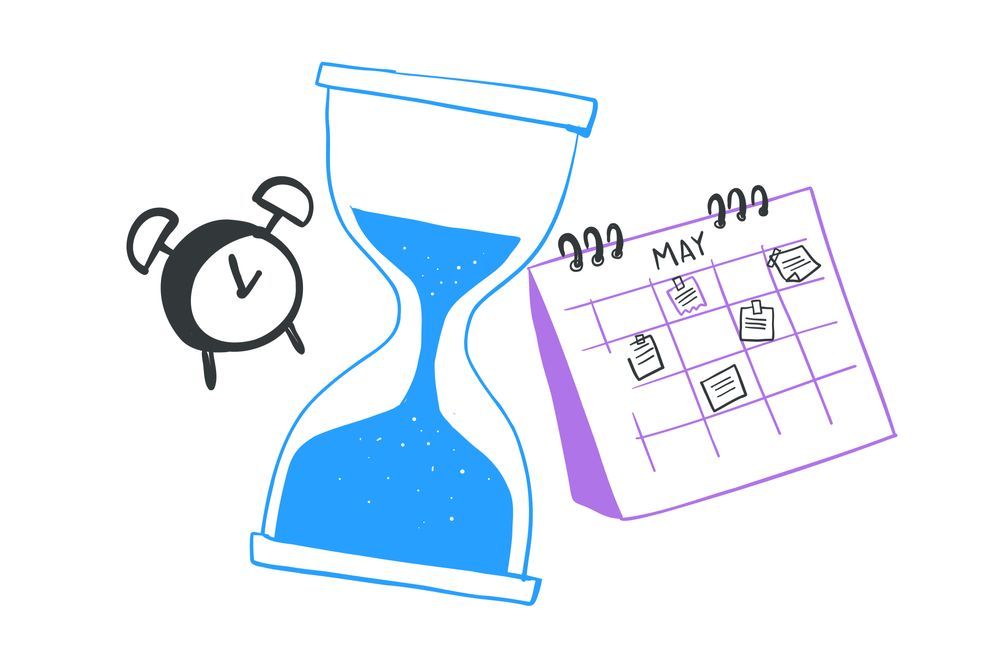You've heard it said before probably a gazillion times, but time management is the backbone of productivity and success. In a world where every second counts, being able to effectively manage your time can make the difference between reaching your goals and falling short.
This blog post aims to shed light on what time management is, why it's crucial, and how you can become a time management pro. First step? Setting time aside to manage how you're going to make use of your time. Dive into this short read to learn more.
What Is Time Management?
Successful time management is the art of using your time wisely to achieve specific goals and objectives. It involves setting priorities, creating schedules, and allocating resources to maximize efficiency and productivity. Essentially, it's about making the most of the 24 hours we all have in a day.
Why Is Time Management Important?
Effective time management is essential for several reasons:
- Productivity: It helps you complete tasks efficiently, reducing wasted time and effort.
- Stress Reduction: Properly managed time can reduce stress by giving you a sense of control of your time and activities.
- Goal Achievement: It allows you to set goals, prioritize tasks, and make steady progress towards your objectives, helping you accomplish important tasks and get things done.
- Work-Life Balance: Time management is a crucial tool for achieving work-life balance. It enables you to allocate time to work, personal life, and leisure, ensuring you don't miss important deadlines or neglect your wellbeing.
- Increased Efficiency: You'll find yourself completing specific tasks faster and with fewer errors when you employ effective time management tips like using your time effectively.
- Opportunities: Time management opens up windows of time for learning, networking, and exploring new opportunities, instead of allowing procrastination to hold you back.
How to Manage Your Time Effectively and Improve Your Time Management Skills
Now that we've established the importance of time management, let's dive into practical time management to help you keep track of your progress and master this crucial skill to achieve better time management:
- Set Clear Goals: To increase productivity, start by defining your short-term and long-term goals. Knowing what you want to achieve will help you prioritize tasks effectively.
- Prioritize Tasks: Use techniques like the Eisenhower Matrix (urgent tasks vs. important) to prioritize tasks. Focus on the most important and time-sensitive ones first, while consciously recognizing that some tasks may be urgent but not important. This strategic approach ensures that you allocate your time to the tasks that truly matter and helps you avoid getting bogged down by less critical matters.
- Create a To-Do List: Organize your tasks into a daily or weekly to-do list. This helps you stay on track and reduces the risk of forgetting important items.
- Time Blocking: Allocate specific time limits, or "chunks of time," for different tasks or activities, such as using the Pomodoro technique. This helps you concentrate fully on one task at a time and avoid losing time due to distractions. Consider tackling the most challenging tasks first thing in the morning when your energy levels are at their peak.
- Use Technology: Utilize time management tools. Apps, calendars, and tools can help you streamline your schedule and set reminders. Technology can be a powerful ally in increasing productivity and saving you valuable time. Whether you're handling personal tasks, work-related assignments, or even project management responsibilities, technology offers a wide array of resources to help you efficiently allocate your resources, stay organized, and accomplish your goals.
- Avoid Multitasking: Contrary to popular belief, multitasking can reduce efficiency. Focus on one task at a time for better results and avoid switching from one task to another.
- Learn to Say No: Don't overcommit. Politely decline tasks or requests that don't align with your priorities, ensuring you don't procrastinate on the things that truly matter.
- Delegate: If possible, delegate tasks to others to free up your time for more critical responsibilities.
- Take Breaks: After getting your tasks in order, you need time to relax. Regular breaks can boost productivity and creativity. Don't forget to recharge, which is essential for avoiding high stress levels.
- Review and Adjust: Periodically assess your time management strategies and make adjustments as needed to maintain your momentum and avoid stress levels. It's also an excellent idea to keep a time log and dedicate some time to evaluate how you've been allocating your hours.
Conclusion
In conclusion, having good time management skills helps you accomplish tasks efficiently and make the most of your available resources. By setting clear goals, prioritizing tasks, and employing effective time management tips while developing good time management skills, you can spend time more effectively and achieve your objectives. Remember, it's not about working harder but working smarter 👉🏽🧠👈🏼 So, start implementing these time management techniques today, and watch as you become more efficient, less stressed, and better positioned for success.





